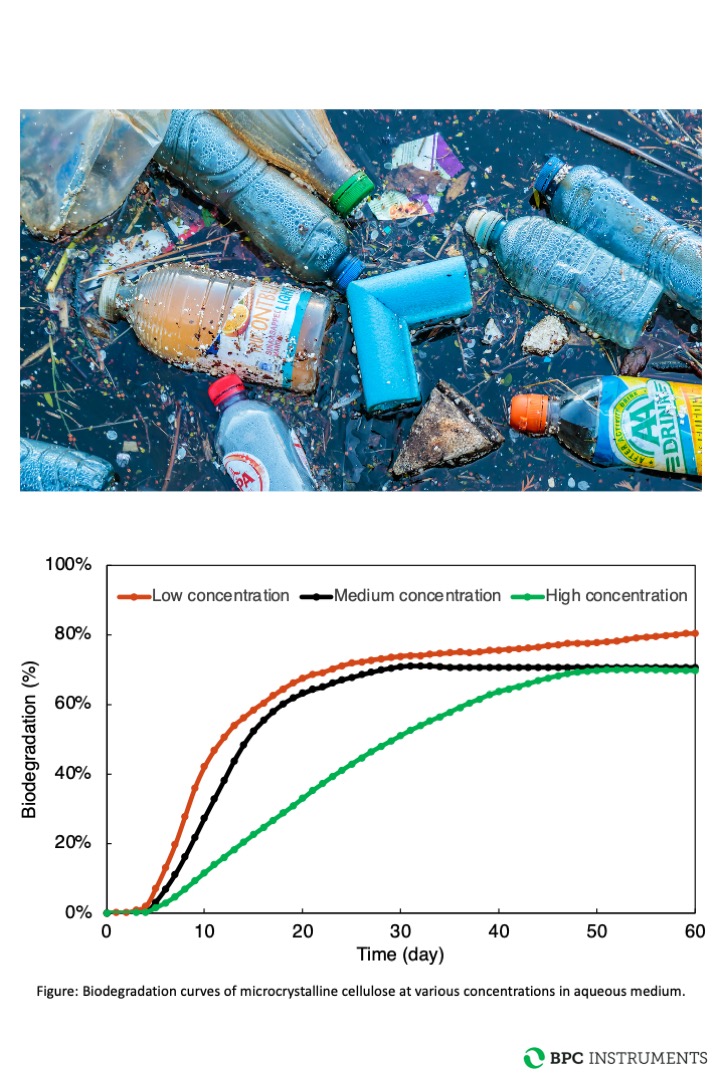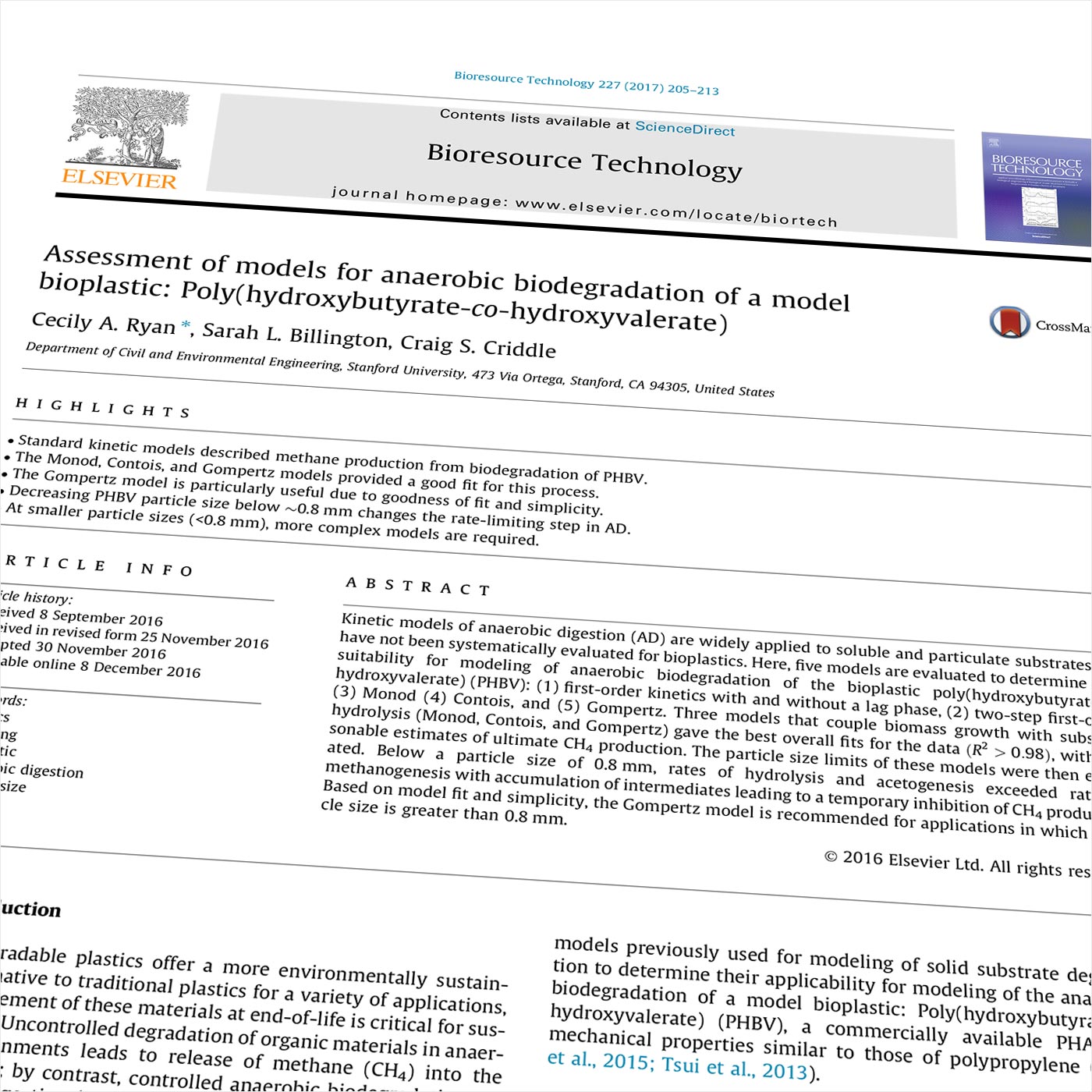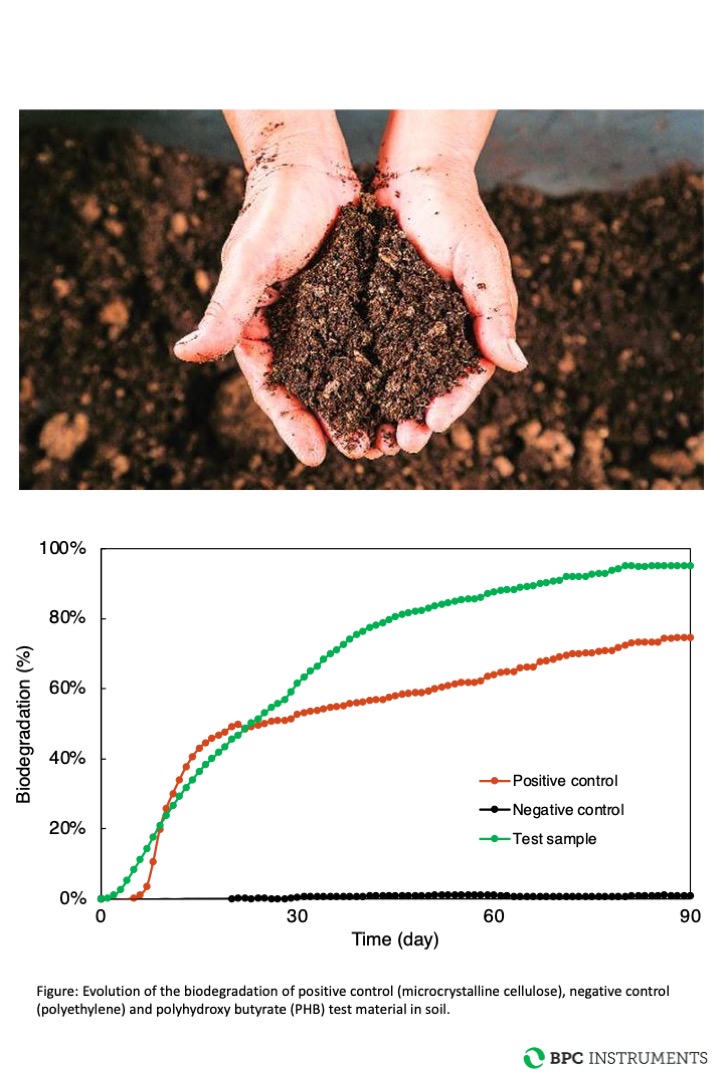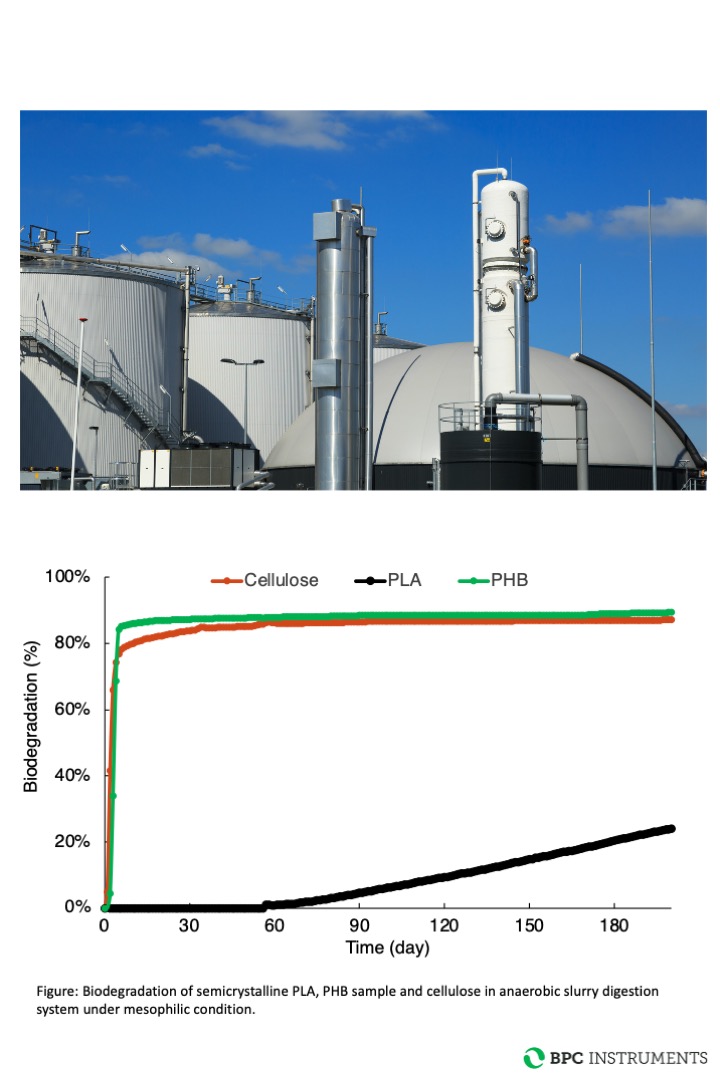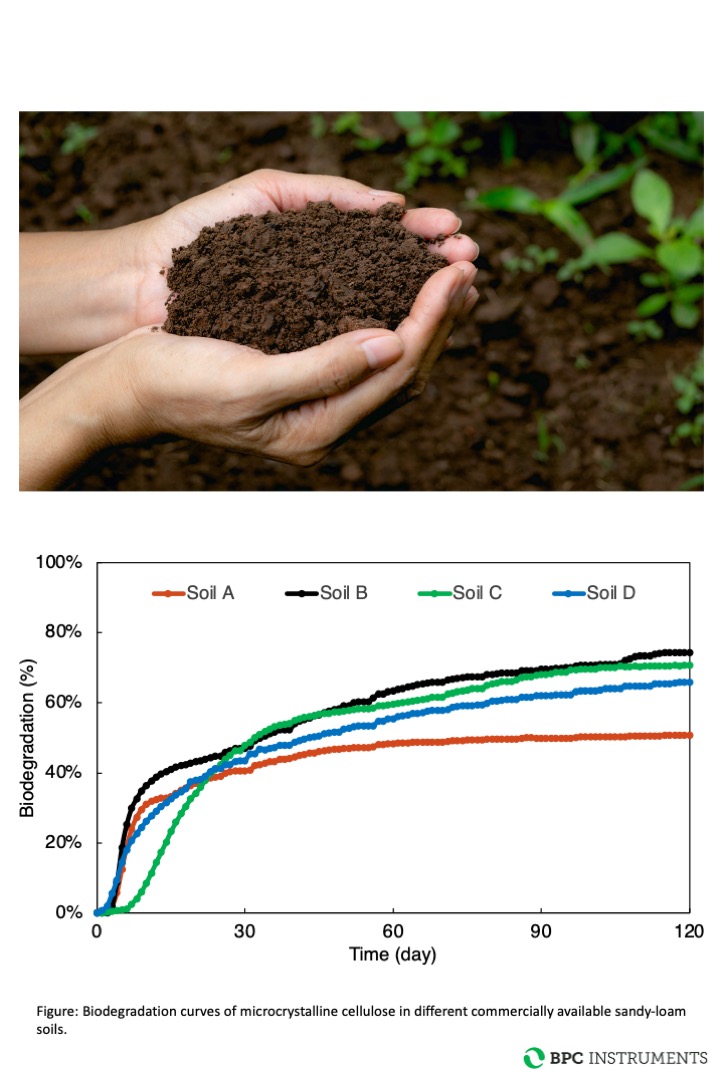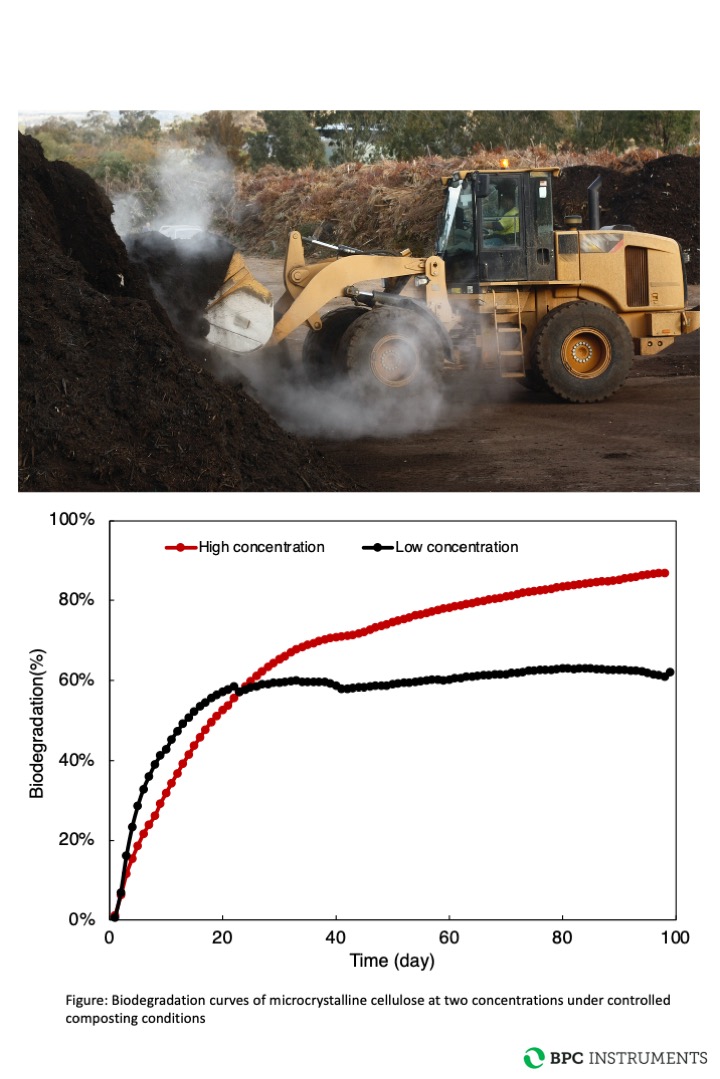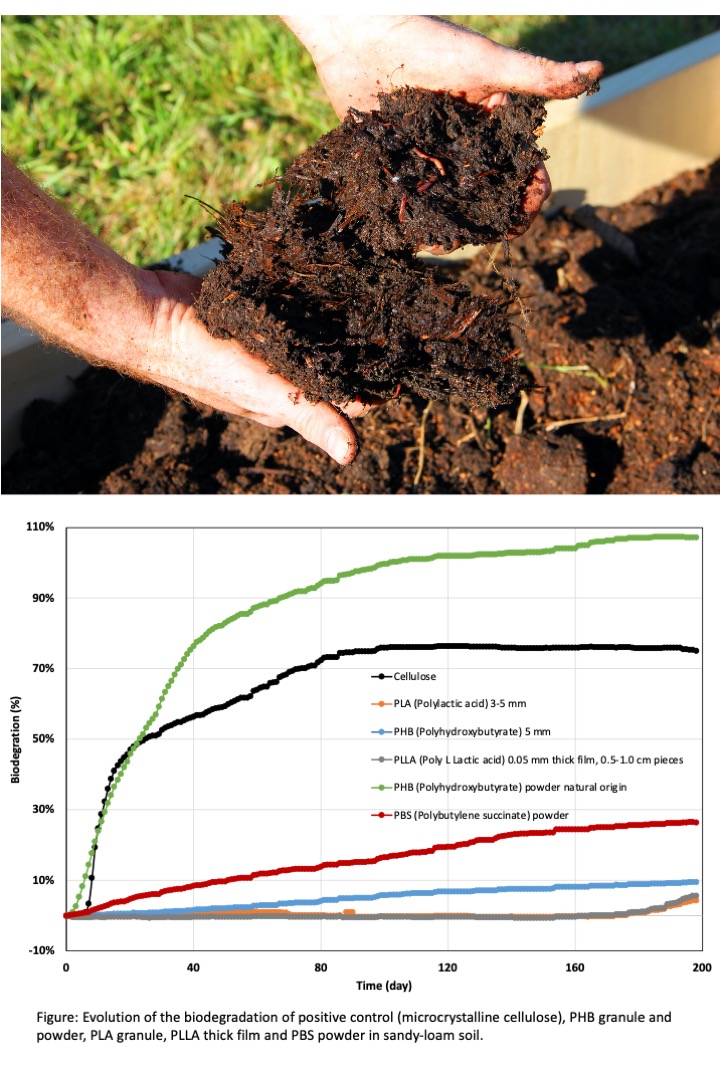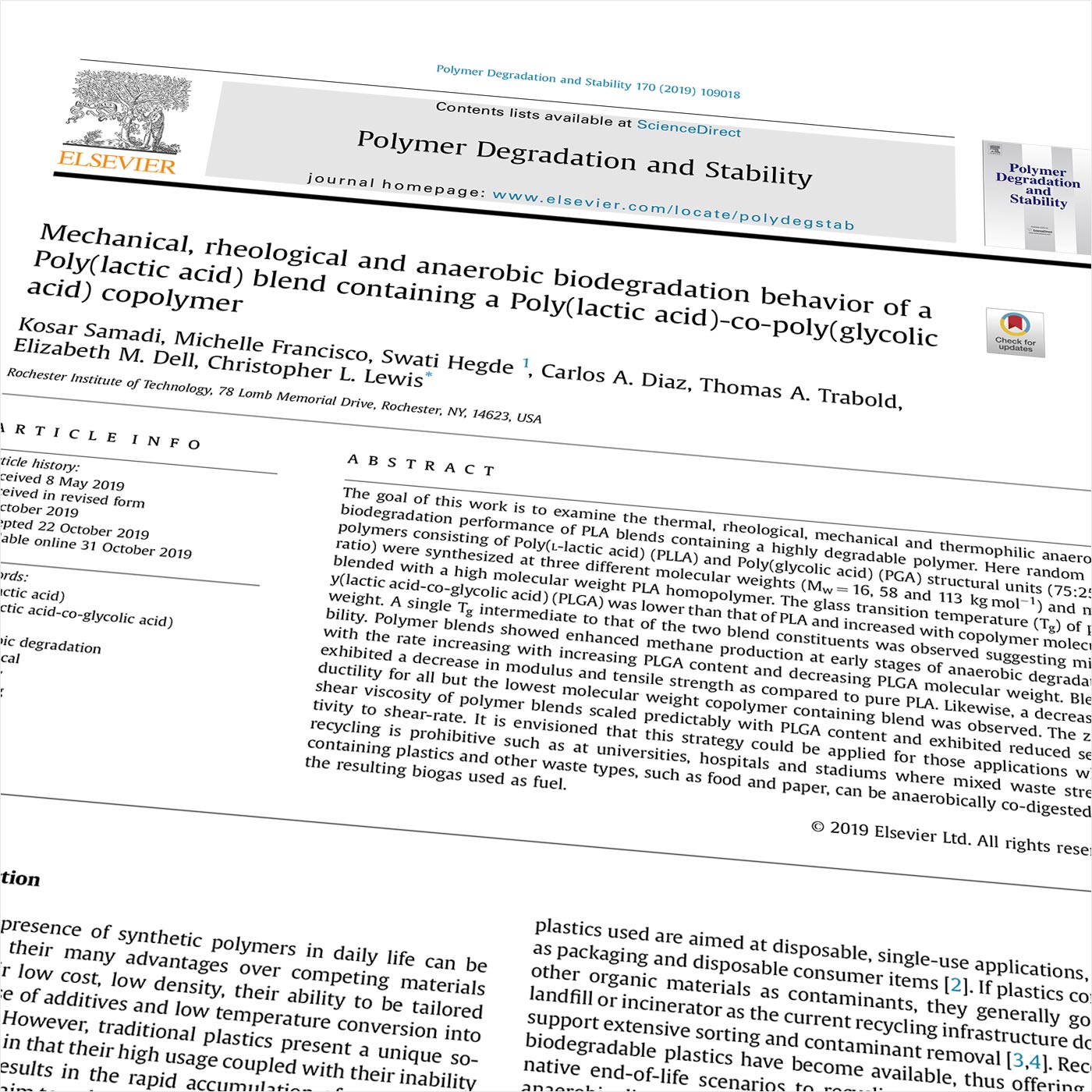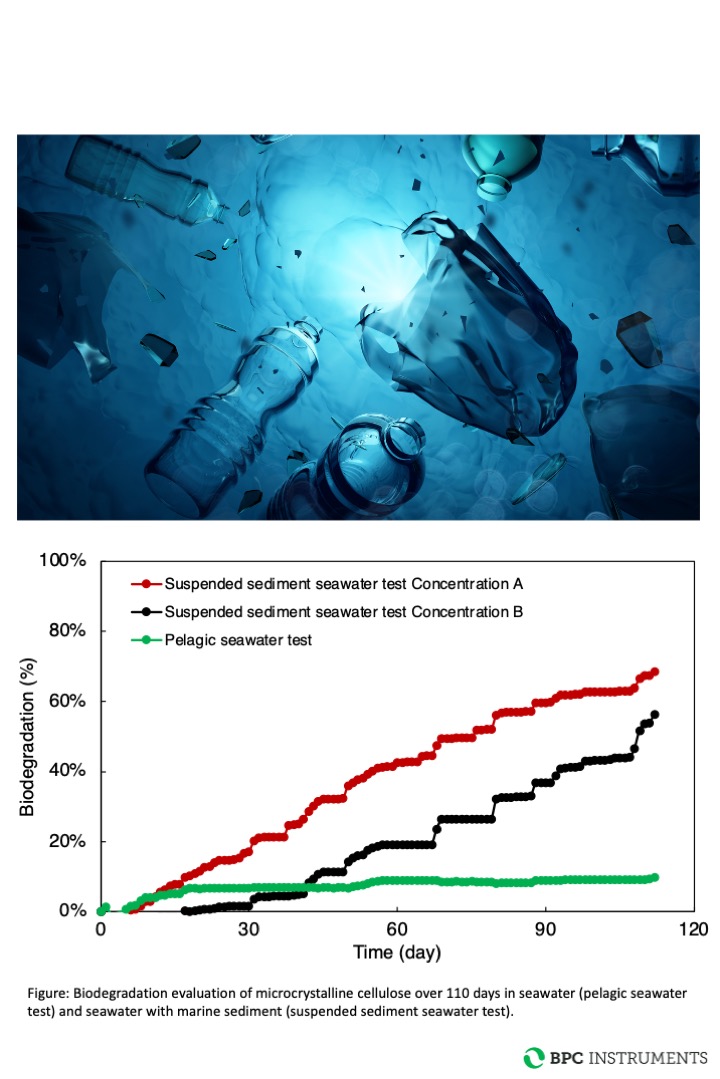Plastics and packaging materials can be more fantastic
if it´s biodegradable
Instrument for biodegradability analyses
The degradation of biodegradable polymers and biodegradable plastics crucially depends on the environments they may end up in, such as soil, fresh or marine water, landfill or composting site. Owing to the great variations in natural conditions, several tests are needed to determine the fate of a polymer material in real life and to study its biodegradability in different environments. In aerobic environments, the biodegradability is usually determined by measuring oxygen demand in a closed respirometer or the amount of carbon dioxide evolved over time. When oxygen is not available under the anaerobic conditions, the measurement of released biogas (a mixer of methane and carbon dioxide) is the method for evaluating anaerobic biodegradability. Biodegradability test can be performed under “certification” or “screening” conditions. Certification conditions are required in cases where the results are intended to be used for certification and/or making public claims on biodegradability, whereas screening conditions are suggested for internal research purposes.
BPC® Blue is a state-of-art respirometer specifically designed to determine the aerobic and anaerobic biodegradability of various biodegradable plastics and polymer materials in a wide range of simulated environmental conditions. For anaerobic biodegradability test, the BPC Blue provides efficient and accurate data analyses on biogas release in any aqueous medium, controlled slurry digestion system and high-solids anaerobic digestion condition. In case of aerobic biodegradability test, the BPC Blue is intended be used together with our patented in-situ carbon dioxide absorption kit to function as a closed respirometer system for measuring oxygen demand. With help of in-situ carbon dioxide absorption kit, the BPC Blue becomes a powerful tool and analysis platform for both anaerobic and aerobic biodegradability analyses in various environmental conditions and support the most of important ISO, European and American standards for anaerobic and aerobic biodegradability evaluation.


